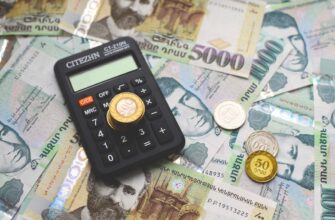👑 Airdrop Royalty: $RESOLV Awaits!
💰 Want to build your crypto empire? Start with the free $RESOLV airdrop!
🏆 A golden chance to grow your wallet — no cost, no catch.
📅 You’ve got 30 days after registering. Don't wait too long!
🌟 Be among the first movers and enjoy the biggest rewards.
🚀 This is your gateway to potential wealth in Web3.
Understanding your tax obligations on cryptocurrency profits is crucial for any Canadian Bitcoin investor. The Canada Revenue Agency (CRA) treats Bitcoin and other cryptocurrencies as commodities, not currency, meaning gains are subject to taxation. Failing to report these gains accurately can lead to penalties and interest charges. This comprehensive guide explains exactly how Bitcoin gains are taxed in Canada, how to calculate what you owe, and how to report it correctly on your tax return.
## How Are Bitcoin Gains Taxed in Canada?
The CRA categorizes income from Bitcoin based on the nature of the activity:
* **Capital Gains:** This is the most common treatment for individual investors. If you bought Bitcoin as an investment (like stocks or real estate) and later sold it for a profit, 50% of that capital gain is taxable. You include this taxable portion in your income for the year.
* **Business Income:** If your activities are considered a business (e.g., frequent day trading, mining Bitcoin as a primary income source, operating a crypto exchange), 100% of your profits are taxed as business income. The CRA looks at factors like frequency of transactions, time spent, and intent to profit.
* **Mining Income:** Bitcoin received from mining is generally treated as business income at its fair market value (FMV) on the day it was mined. If you later sell mined Bitcoin for a gain, that gain could be a capital gain or further business income.
## Calculating Your Bitcoin Capital Gains
To determine your capital gain (or loss), you need two key figures:
1. **Adjusted Cost Base (ACB):** This is essentially your total cost to acquire the Bitcoin, averaged across all units. It includes:
* The purchase price (in CAD, using the exchange rate at the time of purchase).
* Transaction fees (like exchange fees) directly related to the purchase.
* Costs associated with transferring Bitcoin between wallets.
2. **Proceeds of Disposition:** This is the amount you received when you disposed of the Bitcoin (sold, traded, used to buy goods/services, gifted, etc.), converted to CAD using the FMV at the time of disposition.
**The Formula:**
Capital Gain (or Loss) = Proceeds of Disposition – Adjusted Cost Base
**Important:** Canada uses a *pooling method* for identical properties like cryptocurrency. You calculate the average cost (ACB) of *all* units of a specific cryptocurrency (e.g., Bitcoin) you hold. When you dispose of some units, you use this average cost to determine the gain/loss on that specific disposal. You must track the ACB meticulously for each cryptocurrency you own.
## How and Where to Report Bitcoin Gains on Your Tax Return
Reporting your Bitcoin capital gains involves specific schedules:
* **Step 1: Calculate Net Capital Gains/Losses:** For the tax year, total all your capital gains and losses from *all* sources (including Bitcoin, stocks, property). Only 50% of the net capital gain is taxable.
* **Step 2: Report on Schedule 3:** Report the details of your capital gains and losses (including descriptions of properties, dates, ACB, proceeds, and gain/loss for each transaction) on **Schedule 3, Capital Gains (or Losses)**.
* **Step 3: Report Taxable Amount on Line 12700:** The taxable portion (50% of your net capital gain for the year) is entered on **Line 12700 (Capital Gains)** of your T1 Income Tax and Benefit Return.
**If your Bitcoin activities are considered business income:**
* Report the gross income and deduct allowable business expenses on **Form T2125, Statement of Business or Professional Activities**.
* The net business income is then reported on **Line 13500 (Business Income)** of your T1 return.
## Potential Deductions and Losses
* **Capital Losses:** If you sell Bitcoin for less than its ACB, you incur a capital loss. You can use capital losses to offset capital gains in the same year. If your losses exceed your gains, you can carry the net capital loss back up to 3 years or forward indefinitely to offset capital gains in those years.
* **Transaction Fees:** Fees paid to buy, sell, or transfer Bitcoin can be added to the ACB (reducing your eventual capital gain) or deducted as a cost of disposition (reducing your proceeds). They cannot be claimed as a separate deduction.
* **Business Expenses:** If your activities are classified as a business, you can deduct legitimate expenses incurred to earn that income (e.g., mining equipment depreciation, electricity for mining, trading software subscriptions, professional fees).
## Consequences of Not Reporting Bitcoin Gains
Failing to report cryptocurrency income can lead to significant penalties:
* **Failure to Report Income Penalty:** 10% of the amount you failed to report, plus an additional 20% for a second failure within a 4-year period.
* **Gross Negligence Penalties:** Up to 50% of the unpaid tax if the CRA determines the failure was deliberate or due to gross negligence.
* **Interest Charges:** Compound daily on any unpaid taxes from the filing deadline.
* **Audit and Reassessment:** The CRA actively targets cryptocurrency transactions using data from exchanges and blockchain analysis.
## Frequently Asked Questions (FAQ)
* **Q: Is Bitcoin taxed in Canada?**
**A:** Yes. Profits from selling, trading, or using Bitcoin are generally taxed as either capital gains (50% taxable) or business income (100% taxable).
* **Q: Do I pay tax if I transfer Bitcoin between my own wallets?**
**A:** No. Simply transferring Bitcoin between wallets you own is not considered a disposition and does not trigger a tax event.
* **Q: How is Bitcoin taxed if I use it to buy something?**
**A:** Using Bitcoin to purchase goods or services is considered a disposition. You must calculate the capital gain (or loss) based on the FMV of the goods/services received (in CAD) compared to your Bitcoin’s ACB at the time of the transaction.
* **Q: What if I lost money on Bitcoin? Can I claim it?**
**A:** Yes. Capital losses from selling Bitcoin below your ACB can be used to offset capital gains in the same year or carried forward/backward to other tax years.
* **Q: How do I determine the fair market value (FMV) of Bitcoin for tax purposes?**
**A:** Use the closing price (in CAD) on a reputable cryptocurrency exchange at the specific date and time of the transaction. Keep records of the exchange rate source.
* **Q: Do I need to report if I haven’t sold my Bitcoin?**
**A:** No. Simply holding Bitcoin (HODLing) is not a taxable event. Tax is only triggered when you dispose of it (sell, trade, spend, gift).
* **Q: What records do I need to keep?**
**A:** Maintain detailed records for *every* transaction: date, type (buy/sell/trade/spend), amount in crypto, FMV in CAD at the time, transaction fees, wallet addresses involved, and the purpose of the transaction. Keep these records for at least 6 years.
* **Q: Does the CRA know about my crypto transactions?**
**A:** Increasingly, yes. The CRA has information-sharing agreements with major exchanges and uses specialized software to track blockchain activity. Expect increased scrutiny.
## Conclusion
Paying taxes on Bitcoin gains in Canada is a non-negotiable responsibility. By understanding whether your activities generate capital gains or business income, meticulously tracking your Adjusted Cost Base (ACB) and transaction history, and accurately reporting on Schedule 3 or Form T2125, you can ensure compliance with CRA regulations. Utilize capital losses strategically and keep impeccable records. Given the complexity, consulting a tax professional experienced in cryptocurrency is highly recommended to navigate your specific situation and minimize your tax liability legally. Staying informed and compliant protects you from penalties and ensures you can fully benefit from your cryptocurrency investments.








